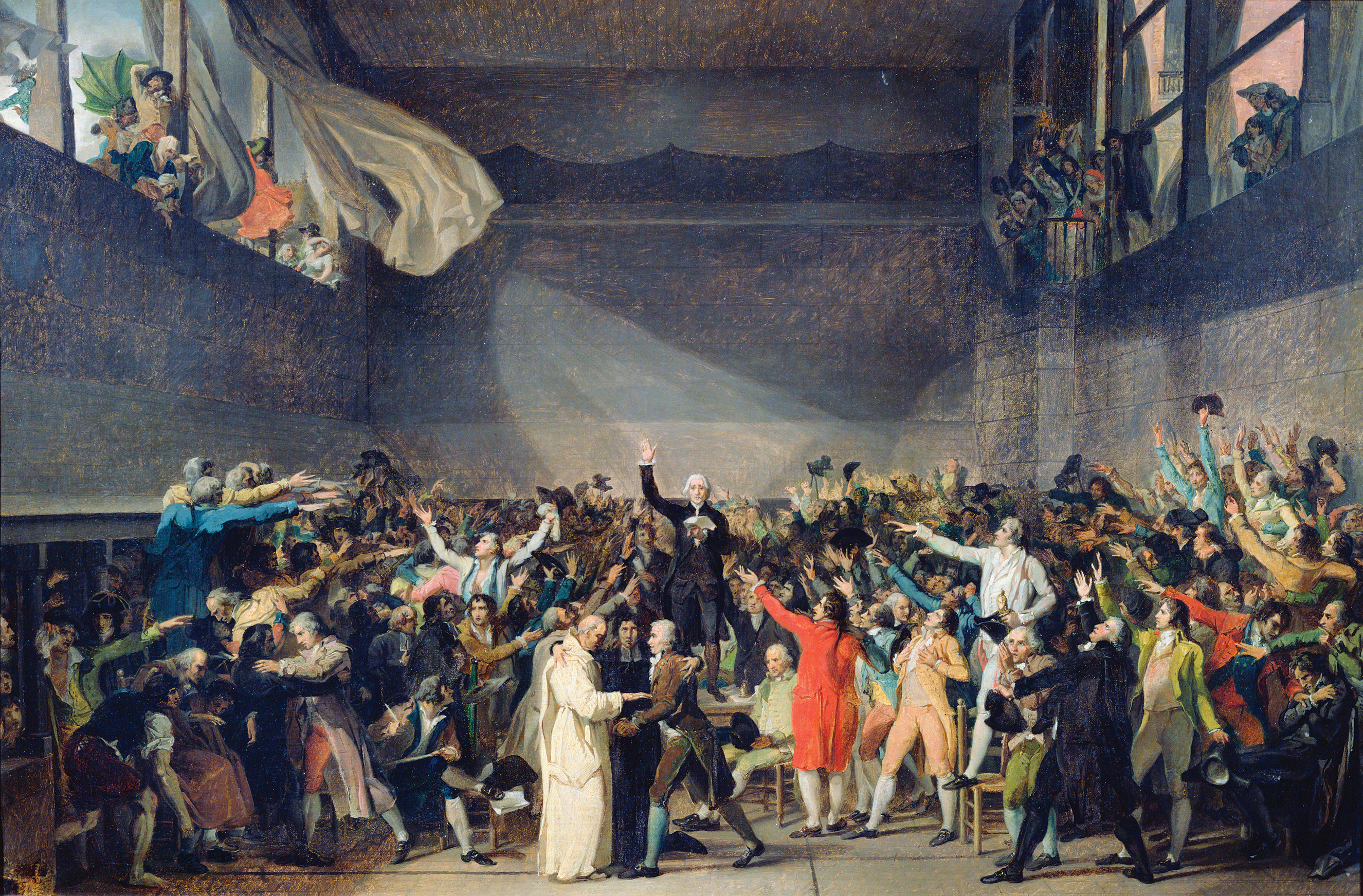A History of World Societies:
Printed Page 658
A History of World Societies Value
Edition: Printed Page 662
The National Assembly
As its name indicates, the Estates General was a legislative body with representatives from the three orders of society: the clergy, nobility, and commoners. On May 5, 1789, the twelve hundred newly elected delegates of the three estates gathered in Versailles for the opening session of the Estates General. They met in an atmosphere of deepening crisis. A poor grain harvest in 1788 caused sharp increases in the price of bread, and inflation spread quickly through the economy. As a result, demand for manufactured goods collapsed, and thousands of artisans and small traders lost work.
The Estates General was almost immediately deadlocked by arguments about voting procedures. Controversy had begun during the electoral process itself when the government confirmed that, following precedent, each estate should meet and vote separately. Critics had demanded instead a single assembly dominated by the third estate. In his famous pamphlet “What Is the Third Estate?” the abbé Emmanuel Joseph Sieyès argued that the nobility was a tiny, overprivileged minority and that commoners constituted the true strength of the French nation. (See “Listening to the Past: Abbé Sieyès, ‘What Is the Third Estate?’”) The government granted the third estate as many delegates as the clergy and the nobility combined, but then nullified the reform by granting one vote per estate, meaning that the two privileged estates could always outvote the third. The issue came to a crisis in June 1789 when delegates of the third estate refused to meet until the king ordered the clergy and nobility to sit with them in a single body. On June 20 the delegates of the third estate, excluded from their hall because of “repairs,” moved to a large indoor tennis court where they swore the famous Oath of the Tennis Court, pledging not to disband until they had been recognized as a National Assembly and had written a new constitution.

The king’s response was disastrously ambivalent. Although he made a conciliatory speech accepting the deputies’ demands, he called a large army toward the capital to bring the Assembly under control, and on July 11 he dismissed his finance minister and other liberal ministers. On July 14, 1789, several hundred common people, angered by the king’s actions and fearing he would use violence to disband the National Assembly, stormed the Bastille (ba-
Uprisings also rocked the countryside. In the summer of 1789 throughout France peasants began to rise in insurrection against their lords, ransacking manor houses and burning feudal documents that recorded their obligations. In some areas peasants reoccupied common lands enclosed by landowners and seized forests. Fear of marauders and vagabonds hired by vengeful landlords — called the Great Fear by contemporaries — seized the rural poor and fanned the flames of rebellion.
The National Assembly responded to the swell of popular anger with a surprise maneuver on the night of August 4, 1789. By a decree of the Assembly, all the old noble privileges — peasant serfdom where it still existed, exclusive hunting rights, fees for having legal cases judged in the lord’s court, the right to make peasants work on the roads, and a host of other dues — were abolished along with tithes paid to the church. From this point on, French peasants would seek mainly to protect and consolidate this victory. On August 27, 1789, the Assembly further issued the Declaration of the Rights of Man and of the Citizen. This clarion call of the liberal revolutionary ideal guaranteed equality before the law, representative government for a sovereign people, and individual freedom. It was quickly disseminated throughout France, the rest of Europe, and around the world.
The National Assembly’s declaration had little practical effect for the poor and hungry people of Paris. The economic crisis worsened after the fall of the Bastille, as aristocrats fled the country and the luxury market collapsed. Foreign markets also shrank, and unemployment among the urban working class grew. In addition, women — the traditional managers of food and resources in poor homes — could no longer look to the church, which had been stripped of its tithes, for aid.